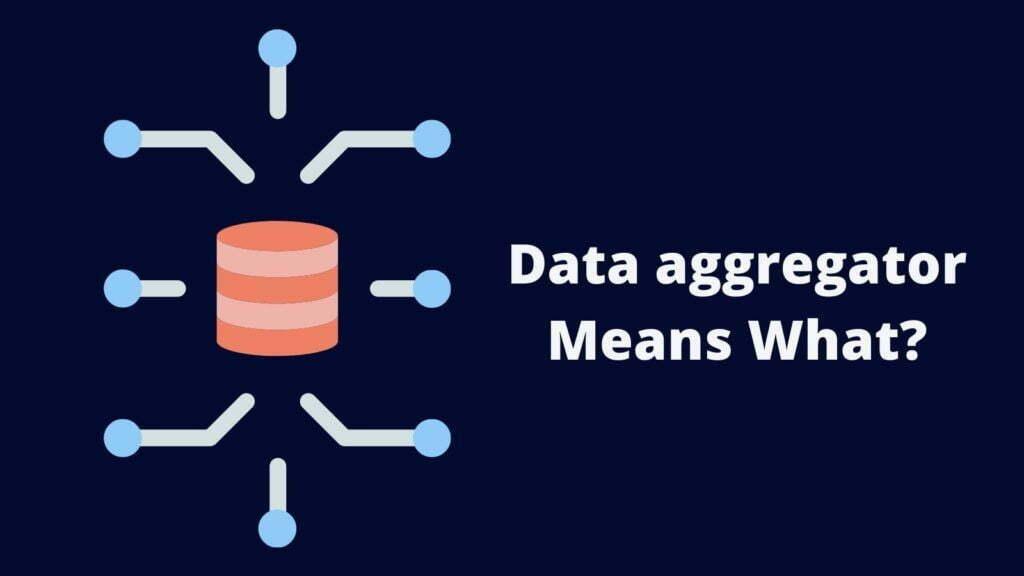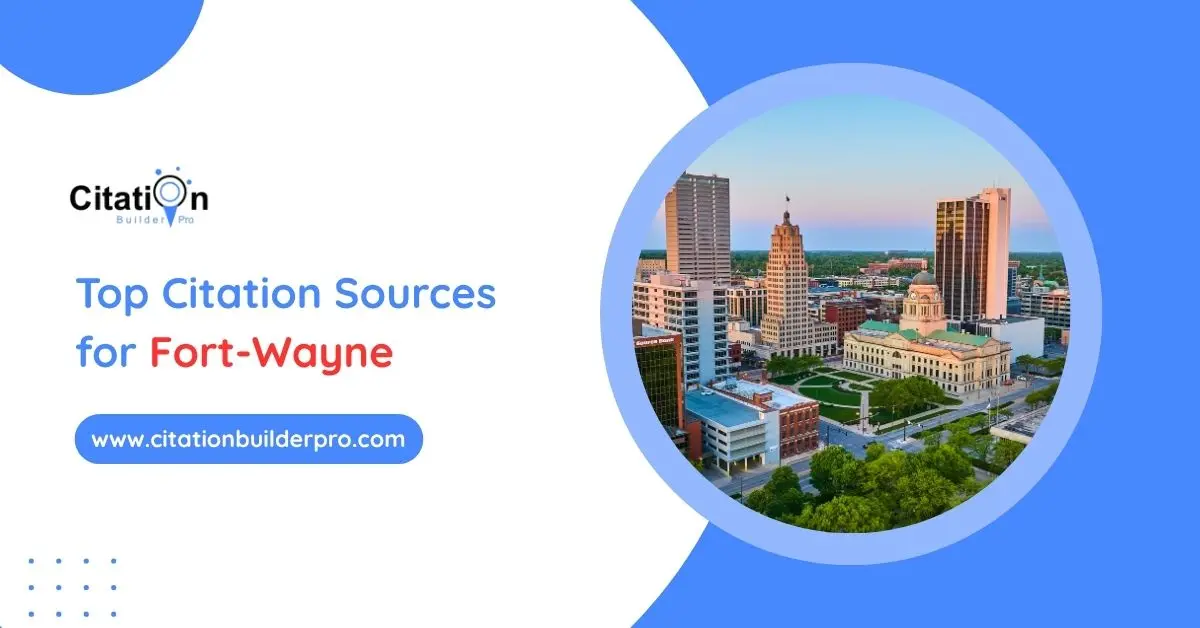Managing your online business presence across hundreds of local citation sites can be overwhelming. That’s where Local Data Aggregators come in they distribute your business data NAP (Name, Address, Phone Number) to hundreds of trusted directories, mapping services, and search engines like Google Maps, Apple Maps, and Bing Places.
In this guide, you’ll learn what data aggregators are, how they power Local SEO, and the most popular aggregator networks to help your business get found everywhere.
Table Of Contents
What Are Local Data Aggregators?
Local Data Aggregators are centralized platforms that collect, verify, and distribute business information to hundreds of citation sources, GPS networks, voice assistants, and local directories like Yelp, BBB, Manta, Trustpilot, and Angi.
They act as data hubs ensuring that your NAP details remain accurate and consistent everywhere online.
How Data Aggregators Work:
Collect: Gather data from government databases, utilities, business submissions, and third-party sources.
Verify: Validate accuracy, remove duplicates, and standardize business listings.
Distribute: Send verified data to directories, search engines, and GPS systems.
Update: Automatically propagate future updates (address changes, phone numbers, hours, etc.).
By feeding consistent business information into multiple trusted ecosystems, data aggregators improve your Local SEO rankings, brand trust, and online visibility.
Why Data Aggregators Are Crucial for Local SEO
Consistency is key in Local SEO.
When your business information is uniform across multiple citation sources, Google’s algorithms view your brand as more credible and trustworthy.
Here’s why data aggregators are indispensable for any local business:
NAP Consistency: Ensure every business listing matches your verified NAP data.
Broader Distribution: Spread your data to hundreds of directories, GPS apps, and navigation systems.
Cost-Effective Local SEO: Submissions start at around $30 per location, far cheaper than manual entry.
Higher Visibility: Improve your Google Map Pack rankings, voice search results, and AI Overview placements.
Top 5 Local Data Aggregator Networks in 2025
These are the most influential data aggregator networks that power the local business data ecosystem worldwide.
Submitting your business to all five ensures maximum visibility, data accuracy, and entity trust.
1. Data Axle (formerly Infogroup)
💰 Price: $30 per location
Data Axle is one of the largest business data distributors in North America.
It supplies verified business information to thousands of local citation sites and mapping services, including:
Yahoo Local
Bing
MapQuest
DexKnows
Citysearch
411.com
Yellow Pages (YP.com)
Why It Matters:
Data Axle connects directly with search engines and marketing tools, giving your listings the broadest possible exposure.
It helps generate high-DA backlinks and boosts your brand’s online authority across trusted citation ecosystems.
2. Foursquare (formerly Factual)
💰 Price: $30 per location
Once famous as a social check-in app, Foursquare has become a global location data intelligence provider after merging with Factual.
Foursquare’s data feeds power:
Apple Maps
Uber
Facebook Places
Snapchat Maps
TomTom
Twitter location services
Why It Matters:
Foursquare enhances your visibility across mobile apps, navigation systems, and location-based searches, which are vital for businesses targeting on-the-go consumers.
3. Neustar Localeze
💰 Price: $30 per location
Neustar Localeze focuses on accurate business identity management and is a key data provider for voice search and mapping applications.
Localeze distributes data to:
Google Maps
Bing Places
Yahoo Search
Apple Maps
Alexa
Siri
Why It Matters:
Localeze improves your brand’s visibility in AI-driven and voice search queries such as those made through Alexa and Siri — making it a must for future-ready Local SEO.
4. Yellow Pages Network (YP Network)
💰 Price: $30 per location
Yellow Pages Network (YP Network) is one of the most trusted and long-standing directory citation ecosystems.
It feeds verified business information into hundreds of regional Yellow Pages directories, Superpages, and local search portals across the U.S., U.K., Canada, and Australia.
Network Includes:
YellowPages.com (YP.com)
Superpages.com
Whitepages.com
Local.com
411.com
Why It Matters:
Being part of the YP Network helps your business appear on high-DA citation sites that Google has trusted for decades.
It strengthens your entity presence, boosts referral traffic, and supports citation accuracy across multiple countries.
5. GPS Network (Global Mapping Distribution System)
💰 Price: $30 per location
The GPS Network is not a single company but a global distribution ecosystem that aggregates and updates business data across mapping service listings and navigation systems.
Includes Integrations With:
TomTom
Garmin
Here Technologies
Apple Maps
Google Maps
Waze
Why It Matters:
When your data is accurate on the GPS Network, it ensures customers can find your location easily whether they’re driving, walking, or using ride-share apps like Uber and Lyft.
This network enhances both local search visibility and real-world discoverability.
Manual Citation Building vs Data Aggregators
| Aspect | Manual Citation Building | Data Aggregators |
|---|---|---|
| Process | Submit listings individually to Yelp, BBB, Angi, etc. | Submit once and distribute automatically |
| Time Required | High | Low |
| Coverage | Limited (niche only) | 100s of directories, GPS, and apps |
| Cost | Time-consuming | ~$30 per location |
| Best For | Industry-specific backlinks | Broad coverage and NAP consistency |
Recommendation: Combine both methods use aggregators for mass distribution and manual submissions for high-value niche citation sources like:
TripAdvisor (Hospitality)
Healthgrades (Healthcare)
Avvo (Legal)
Houzz and HomeAdvisor (Home Services)
How Aggregators Boost Google’s Knowledge Graph & AI Overviews
Search engines like Google, Bing, and Apple Maps use these aggregator data feeds to confirm your business identity.
When your brand data matches across the aggregators, directories, and Google My Business (GMB), it strengthens your entity’s credibility in the Google Knowledge Graph.
That’s how your business earns placements in:
Google Local Pack results
Google Maps listings
Voice search responses (Alexa, Siri, Google Assistant)
AI Overviews in search results
In short, aggregators act as verification pipelines between your business and the search engine ecosystem.
Tools to Manage and Audit Local Citations
Use professional Local SEO tools to monitor and maintain your citations:
Citation Builder Pro – Manage submissions, audits, and NAP consistency.
Moz Local – Sync data across major aggregators.
BrightLocal – Run citation audits and rank tracking.
Whitespark – Build manual citations and track accuracy.
These tools ensure you never lose control of your business data distribution or suffer from inconsistent listings.
Pricing Overview of Data Aggregator Submissions
| Data Aggregator Network | Price per Location | Key Benefits |
|---|---|---|
| Data Axle | $30 | High authority, wide coverage |
| Foursquare | $30 | Mobile + GPS network reach |
| Neustar Localeze | $30 | Voice search optimization |
| Yellow Pages Network | $30 | High-DA citation trust |
| GPS Network | $30 | Accurate navigation listings |
All networks combined provide broad coverage across directories, search engines, maps, apps, and voice assistants ensuring your business appears everywhere potential customers look.
How to Submit Business Data to Aggregators
Audit Your Listings: Identify missing or duplicate citations using citation audit tool.
Prepare Accurate NAP Data: Ensure uniformity across all business profiles.
Submit to Major Aggregators: Use Citation Builder Pro for one-time submissions.
Verify Ownership: Complete phone or email verifications.
Monitor Performance: Track with Google My Business Insights or BrightLocal.
Update Regularly: Reflect any business address, phone, or operating hour changes promptly.
Why Use Citation Builder Pro for Aggregator Submissions
At Citation Builder Pro, we make it easy to create and manage listings across all top data aggregator networks including Data Axle, Foursquare, Neustar Localeze, Yellow Pages Network, and GPS Network.
Our services include:
Low-cost submissions ($30 per location)
Free listing updates
No automatic renewals
Bulk local citation orders
Scalable local SEO solutions for multi-location businesses
Whether you manage 1 or 100 business locations, we ensure your listings remain consistent, verified, and visible across the entire local search ecosystem.
Final Thoughts
Local Data Aggregators are the foundation of a healthy Local SEO strategy.
They amplify your visibility across Google Maps, Apple Maps, Yelp, BBB, Angi, Manta, Superpages, and hundreds of high DA citation sites.
By combining aggregator submissions with manual citation building, you’ll achieve:
Broader local search visibility
Higher trust authority in Google’s Knowledge Graph
Consistent NAP accuracy across all directories
Start your data aggregator submission today with Citation Builder Pro the most cost-effective local SEO solution for small businesses, agencies, and franchises.
Frequently Asked Questions (FAQs)
Q1. What are local data aggregators?
Ans: Local data aggregators are centralized platforms (e.g., Data Axle, Foursquare, Neustar Localeze, Yellow Pages Network, GPS Network) that collect, verify, and distribute business information like NAP and business categories to hundreds of directories, mapping services, and apps to ensure consistent citation building across the web.
Q2. Which aggregator networks do you submit to?
Ans: We submit to the leading aggregator networks: Data Axle, Foursquare, Neustar Localeze, Yellow Pages Network (YP Network), and the GPS Network. These feeds help your listings appear on Google Maps, Apple Maps, Bing Places, many high-DA citation sites, and navigation systems.
Q3. How much does aggregator submission cost?
Ans: Standard aggregator submission pricing starts at $30 per location. Bulk discounts and agency packages are available for multi-location deployments. This price typically includes initial submission, verification guidance, and listing propagation monitoring.
Q4. Do you provide listing updates and are there automatic renewals?
Ans: Yes, we include free listing updates to correct NAP or business detail changes. We do not enroll clients in automatic renewals unless explicitly requested, and updates are included with standard managed packages.
Q5. How long does it take for listings to appear across directories and maps?
Ans: Propagation times vary by network: some aggregator partners push changes within days, while others can take 2–8 weeks to fully reflect across all downstream directories, GPS services, and mapping apps. We provide monitoring and duplicate suppression to help speed accuracy and detection.
Scale Local Visibility — Fast, Accurate Citation Building
Submit verified business data to top aggregator networks Data Axle, Foursquare, Neustar Localeze, YP Network & GPS Network. Low-cost submissions from $30 per location with free updates and no automatic renewals.
- Bulk orders & agency packages scale to 20+ locations
- Automated aggregator distribution + manual high-DA citation placement
- Audit, cleanup & duplicate suppression included
$30 per location
No auto renew · Free listing updates
Need bulk? Ask about scalable agency packages.
How useful was this post?
Average rating 5 / 5. Votes: 1
No votes so far! Be the first to rate this post.

I am the founder of Citation Builder Pro. I have been in the SEO and content marketing industry for 15 years and have a lot of experience in public relations and online marketing.
I started Citation Builder Bro to help businesses of all sizes create high-quality citations for their websites. My team and I are dedicated to providing our clients with the best possible services.




